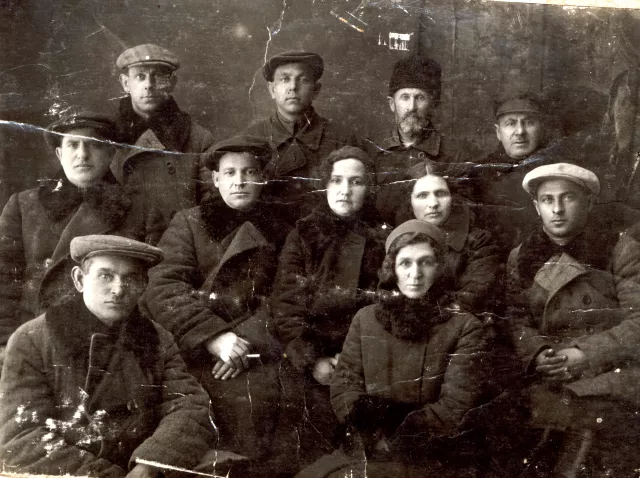Meyer Goldstein's photo of tailors in Korsoun, including his mother in law Makhlia Zhitnitskaya
An artel of Jewish tailors in Korsoun, 1926. In the center is my mother-in-law Makhlya.
Most Jews in Korsoun were craftsmen and traders. Craftsmen included tailors, hatters, shoemakers, roofers, and balaguls, those who had horses and carts, and took people to and from the train station, which was about five kilometers away from Korsoun. During Soviet times, all handicraftsmen united into an association called Shveinik, meaning 'sewing industry worker.' All of Shveinik's members were Jewish. This artel included my mother's sisters Vekha and Golda as well as many other people whom I knew. Moshka Ocheretik was a craftsman. He led the self-defense unit of the Jews who defended the population from gangs during the Civil War. Jews were all on friendly terms. They helped each other and defended themselves. And the Jews of Korsoun had good relations with Ukrainians. Many Ukrainians even spoke Yiddish as well as their native language.














